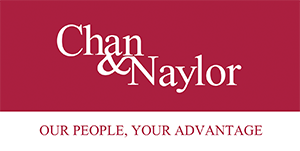Choosing an accountant is like choosing a new business partner. The right accountant will become a trusted colleague and advisor you can depend on, who offers advice and guidance as your business or personal investments grow. Once you’ve decided it’s time to hire an accountant, the next step is to choose which accountant to hire. What are the key things you need to look out for?
Take time to research and work out your need
It’s important to take the time to do this carefully, and there are a few things you’ll want to consider first. You’ll need to think about issues such as the accountant’s location, the workload, whether they are certified tax practitioners, licensed tax agents, the type of experience they have and how much you’ll have to pay to engage their services, and whether they can help to reduce your taxes and protect your assets. The right person will save you time and money year after year.
Look for an accountant with relevant expertise
You’ll need someone with experience preparing tax returns and financial documents for companies of a similar size and revenue to yours. If your company uses cloud-based software for much of its business, you’ll probably want someone who’s savvy with cloud computing. Property tax accounting and asset protection is a specialist service that only as select accountants practice in. If you are a property investor or hold properties within your business portfolio, it is vital that you choose an accountant who can advise you on the proper structures to purchase and hold your property in.
Decide how the accounting work will be divided
Accountants handle every aspect of bookkeeping and small business accounting. In most cases, you can bundle up your bills and invoices, hand them all over, and they can do the rest. But this might not always be the best approach. Accountants often charge by the hour, so making them do simple data-entry tasks is not the best use of their time – time that you’re paying for. If you are able to take charge and get more involved in the accounting process, this will give you a better grasp of your expenses and revenues in real time and a heads-up on potential problems.
For example, you might choose to enter the basic accounts data in-house, then hand the work over to your accountant. Then they can handle the more involved tasks such as bank account reconciliation, filling out tax return forms, payroll and capital depreciation calculations.
Use cloud-based software
Good quality accounting software will make it easy for you to take part in your accounting process. It will simplify tasks like invoicing, automatically sending the invoice and recording its contents at the same time. And if the accounting software is cloud-based, you can then give your accountant secure access to your accounts with the click of a button.
Shortlist your candidates for Interview
As with anything else in life, don’t automatically accept the first offer you receive. Arrange things in such a way that you can compare a selection of accountants with each other. Many people change their accountants because they simply realise that their accountant didn’t provide them with the best advice for their circumstances. This may even help you determine your own business requirements more clearly.
When you meet an accountant for the first time, consider your intuition. Alongside logical evaluations such as location, pricing, experience and references, ask yourself if you could trust this person with the intimate details of your business. If you think you could work with them for the foreseeable future then that’s great start to a working relationship.
Understand how their fee structure works
There’s no single, universal method that accountants use to charge by. Some will charge by the hour or based on the service you are seeking. In many cases, if you are a small business, you should find out if your accountant offers a monthly retainer. As a small business owner, negotiation should already be part of your skill-set.
Make sure you get written quotations from all the accountants you interview, then go away and compare them carefully. Consider a range of scenarios – one fee structure may make sense while your business is small, but could become less attractive as it grows. Always negotiate on fees.
At the end of the day, you are looking for a long term relationship with someone, so they should be proactive with your tax planning and reasonably priced. You are looking for someone who will be there for you all financial steps to guide you in the right direction.
Some accountants will do little more than manage your accounts and complete your tax return forms, but the best accountants are more proactive. Always bear in mind that there is a big difference between tax minimisation (usually legal) and tax avoidance /evasion (usually illegal). You need an accountant who knows the details of tax law so well that they’ll save you money in legal ways, but not one who takes things too far and risks causing your business to operate illegally.
Tap into your social networks – Ask for recommendations
When searching for an accountant, the ideal candidate might be easier to find than you think. Start by asking any friends or family members if they would recommend their accountant. If so, why? And if not, why not? The answers to both questions could prove useful at a later stage when you come to talking to prospective candidates. Choosing an accountant can be a personal decision, so what’s right for your friends or colleagues business might not suit your individual needs. Search your prospective accountants Google Review to discover what client has posted.
If you operate a business, take into account your business structure. The best accountant for a sole trader might not be the best fit for a company with ten employees. Use your own social networks. LinkedIn is one of the largest globally, and if you already have a profile there, you could use it to search for accountants who’ve been recommended by others.
When looking at the accountants LinkedIn profile consider some of the following:
- Who are they connected to? Do they have a strong network of professional people?
- How do they talk about their services? Are they enthusiastic and interested in their work?
- Have they received any recommendations from their clients? What do those recommendations actually say?
- What is their experience? How long have they been in business, and what were they doing before?
- What are their qualifications? Are they a chartered or certified accountant, a bookkeeper, a financial advisor or something else?
Finally, you should choose an accountant who will help you navigate through often complex taxation issues, help your business grow by managing complex financial work and offering advice on practical business issues. This will be guaranteed to save you money in the short and long term.
General Advice Warning
The material on this page and on this website has been prepared for general information purposes only and not as specific advice to any particular person. Any advice contained on this page and on this website is General Advice and does not take into account any person’s particular investment objectives, financial situation and particular needs.
Before making an investment decision based on this advice you should consider, with or without the assistance of a securities adviser, whether it is appropriate to your particular investment needs, objectives and financial circumstances. In addition, the examples provided on this page and on this website are for illustrative purposes only.
Although every effort has been made to verify the accuracy of the information contained on this page and on this website, Chan & Naylor, its officers, representatives, employees, and agents disclaim all liability [except for any liability which by law cannot be excluded), for any error, inaccuracy in, or omission from the information contained in this website or any loss or damage suffered by any person directly or indirectly through relying on this information.





